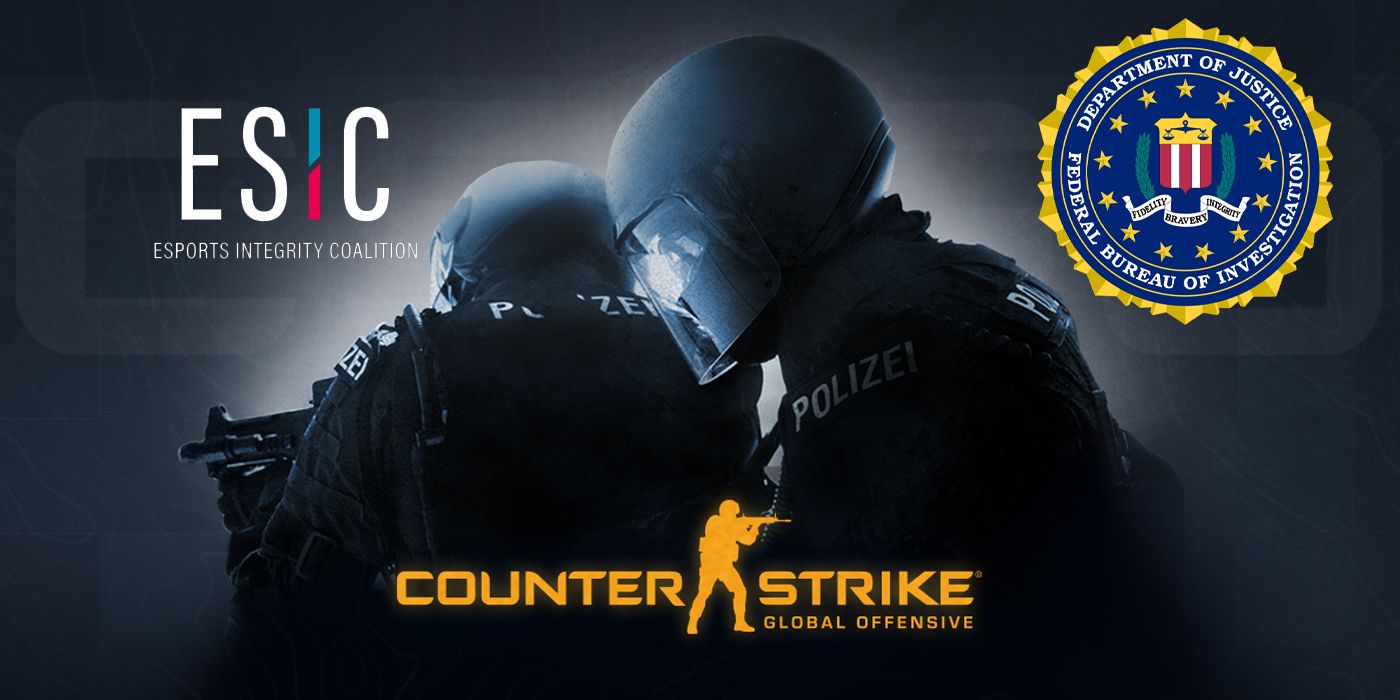A group of professional Counter-Strike: Global Offensive players is under federal investigation for allegedly fixing matches in the popular first-person shooter. Match-fixing has become an increasingly pervasive epidemic in CS:GO, and has gotten bad enough to warrant the FBI stepping in to handle the matter in North America, particularly the North American Mountain Dew League (MDL), although the issue has been ongoing around the globe.
Match fixing and similar forms of gambling have been a problem in competitive online games like CS:GO for some time, and international laws have had different outcomes on mitigating it. Countries like Belgium and the Netherlands have some of the strictest gambling laws in the world, laws that have forbidden games from using features that are otherwise innocuous in other countries, such as loot boxes, within their borders. But even though gambling is a criminal offense in Australia, those laws haven't mitigated the pervasive issue of match fixing there, where swaths of players were recently banned for betting against their own teams in competitive matches. Meanwhile, in North America, where esports gambling is a relatively new phenomenon, match fixing of the sort seen in Australia is becoming enough of a problem that the FBI has decided to step in.
So while Canada is starting to address gambling in video games in the same vein as Belgium and the Netherlands, the United States and Australian law enforcement agencies are teaming up to investigate and ultimately shut down match fixing in their respective territories. The FBI has formed a fledging sports betting investigative unit, which has partnered up with the more experienced Australian Esports Integrity Commission (ESIC) in a joint effort to bring down a "small but significant" group of players responsible for organizing fixed matches in CS:GO, including a group of North American professional players in the NA MDL. Ian Smith, the commissioner of ESIC, recently spoke to YouTuber Slash32, as reported by Kotaku, and stated he is hoping to announce the charges publicly within the next two weeks. While Smith could only speak in broad terms considering the ongoing nature of the investigation, he provided more insight into its progress in the interview.
The US still has to contend with the fact that the laws surrounding esports gambling are more complex because each state and territory has its own individual legislature on the matter, but after the FBI/ESIC investigation goes public, it's likely that sweeping legislation will follow. The United States has never been particularly keen on gambling in the traditional sense, where it is heavily restricted, and in many states is banned outright. The likely reason that esports gambling hasn't gotten much attention in the US is simply because it's a newer phenomenon and is relatively unknown, although that will likely change in two weeks.
While cheating in online multiplayer games has been an ongoing problem practically since day one, game developers and publishers, particularly the major companies, have taken more aggressive and proactive steps to curb or punish active cheating in their properties and franchises, since it negatively affects their bottom line. With match fixing, the issue isn't quite so cut and dried, because those same companies aren't being financially impacted by the practice (for the most part) and cannot police their players outside of the actual game. Furthermore, a lack of comprehensive esports gambling laws in the US means there isn't much that can be done to punish these offenders. But match fixing does negatively impact competitive players in games like Counter-Strike: Global Offensive who just want to compete without worrying about a teammate throwing them under the bus in order to win a bet, so with any luck, this first major investigation by the FBI will effect real and lasting change on such practices.
Source: Kotaku

